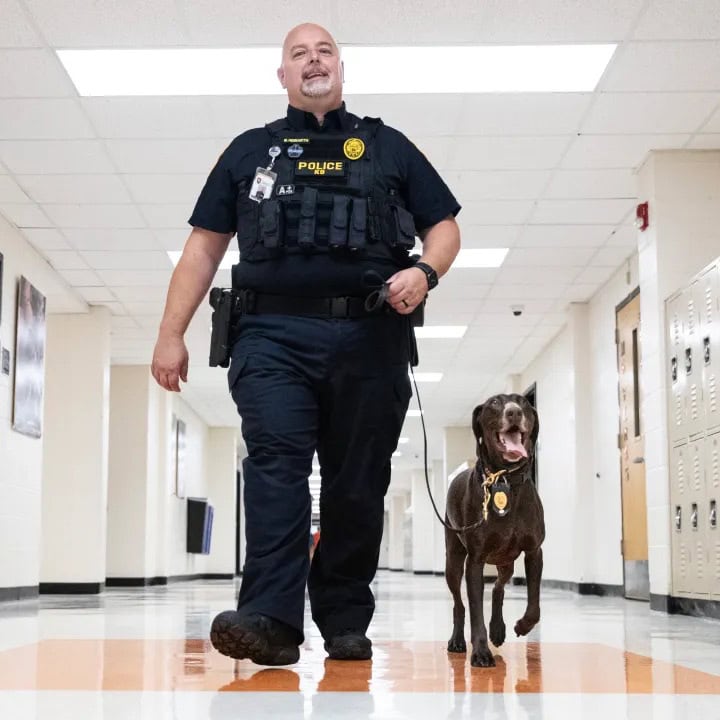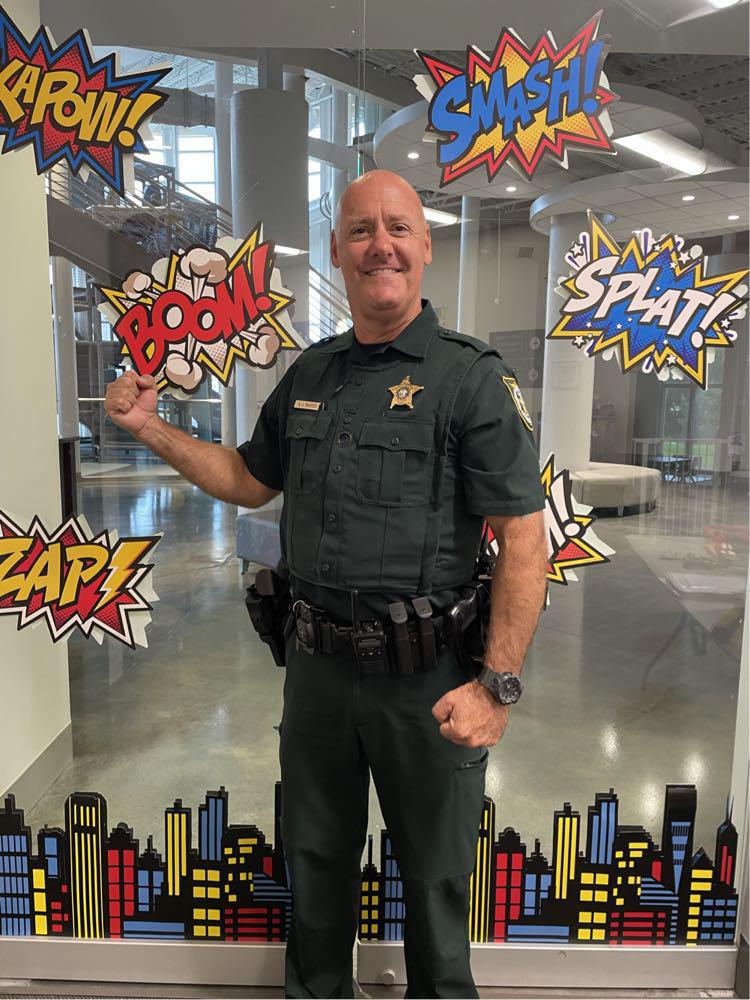A School Resource Officer is a sworn law enforcement officer who is carefully selected, extensively trained in school-based law enforcement and crisis response, and appropriately equipped. Assigned by their law enforcement agency, School Resource Officers work collaboratively with their school(s), applying community-oriented policing methods that are unique to a school environment.
School Resource Officers are the first line of defense during dangerous situations on campus, and their prompt and effective response is crucial in neutralizing threats such as an active assailant. Therefore, they must be well-trained and prepared for such scenarios.

Beyond their role as defenders, School Resource Officers also serve as mentors, guiding and supporting students. They build positive relationships with students, acting as role models and offering advice and guidance. Additionally, School Resource Officers take on the role of counselors, often mediating conflicts between students and helping them resolve disputes. Not all counseling interactions are negative; in fact, School Resource Officers are frequently seen as leaders in their communities. Their presence and conduct often inspire trust and respect among students and school staff, naturally positioning them as mentors.
The journey to becoming a School Resource Officer involves several steps and requirements. It typically begins with attending a Criminal Justice Training Center, completing a basic law enforcement training program, and passing the State Officer Certification Exam. Officers from outside Florida who wish to become certified in the state can attend an Equivalency of Training program. This certification allows them to work for any law enforcement agency in Florida. To become a School Resource Officer, candidates must also undergo criminal background checks, drug testing, and psychological evaluations. Furthermore, they are required to complete mental health crisis intervention training using a curriculum developed by a national organization specializing in this area. This training enhances their knowledge and skills as first responders to incidents involving students with emotional disturbances or mental illness, including de-escalation techniques to ensure the safety of both students and officers.
Law enforcement agencies across Florida’s 67 counties differ in structure and jurisdiction. City police departments have authority within their respective city limits, while sheriff’s offices have jurisdiction throughout their counties, including within city limits. Some county school districts have created their own police departments, known as district police, with jurisdiction limited to school board-owned properties. Each district police department may operate with different models and roles concerning school safety.
Not all law enforcement agencies have School Resource Officers, so it is essential for prospective officers to seek out an agency that offers this role. Some agencies may allow officers to begin directly as School Resource Officers, while others may require a period of service in a patrol function to gain foundational experience in basic law enforcement before specializing in school resource duties.

School Resource Officers act as mentors, offering guidance and support to students. Through building strong, positive connections, they become pillars of encouragement, providing advice and direction when needed.
School Resource Officers act as counselors, frequently mediating student conflicts and assisting in resolving disputes. These interactions aren’t always focused on problems as their presence and behavior inspire trust and respect from students and staff.
The primary responsibility of School Resource Officers is to protect students and staff. As the first line of defense during campus emergencies, their swift and effective actions are crucial in neutralizing threats, including active assailants.
School Resource Officers are skilled in forming strong connections with students, often adopting nurturing, motherly or fatherly roles. Their ability to be approachable and compassionate helps them inspire confidence and earn the respect of those they protect. By balancing authority with a personal, caring attitude, they naturally become role models, guiding students through both challenges and successes with empathy and support.
Website by MosierData